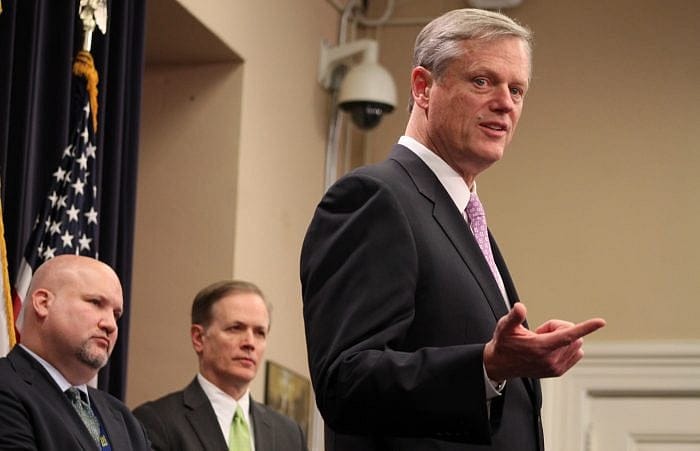Taxes, Taxes, Taxes: Governor Charlie Baker’s New $42.7 Billion Budget

By Matt Murphy
STATE HOUSE NEWS SERVICE
Massachusetts Governor Charlie Baker filed a $42.7 billion budget on Wednesday that features the biggest overhaul to public education funding in decades and proposes new taxes on electronic nicotine products and on pharmaceutical manufacturers to help pay for opioid addiction services.
